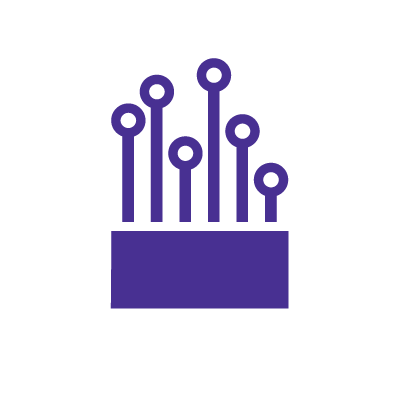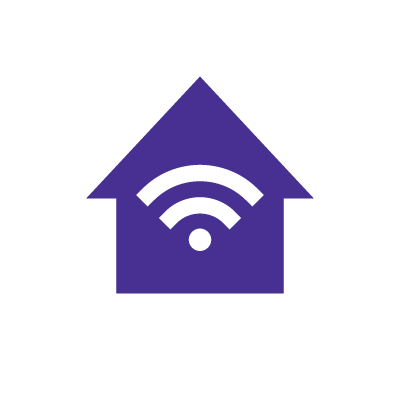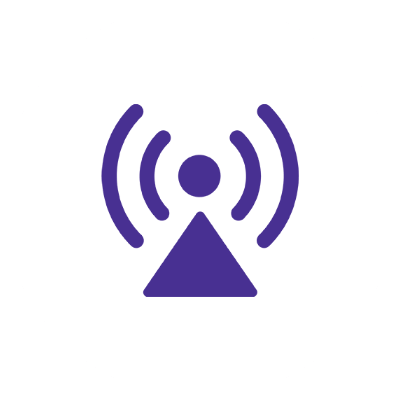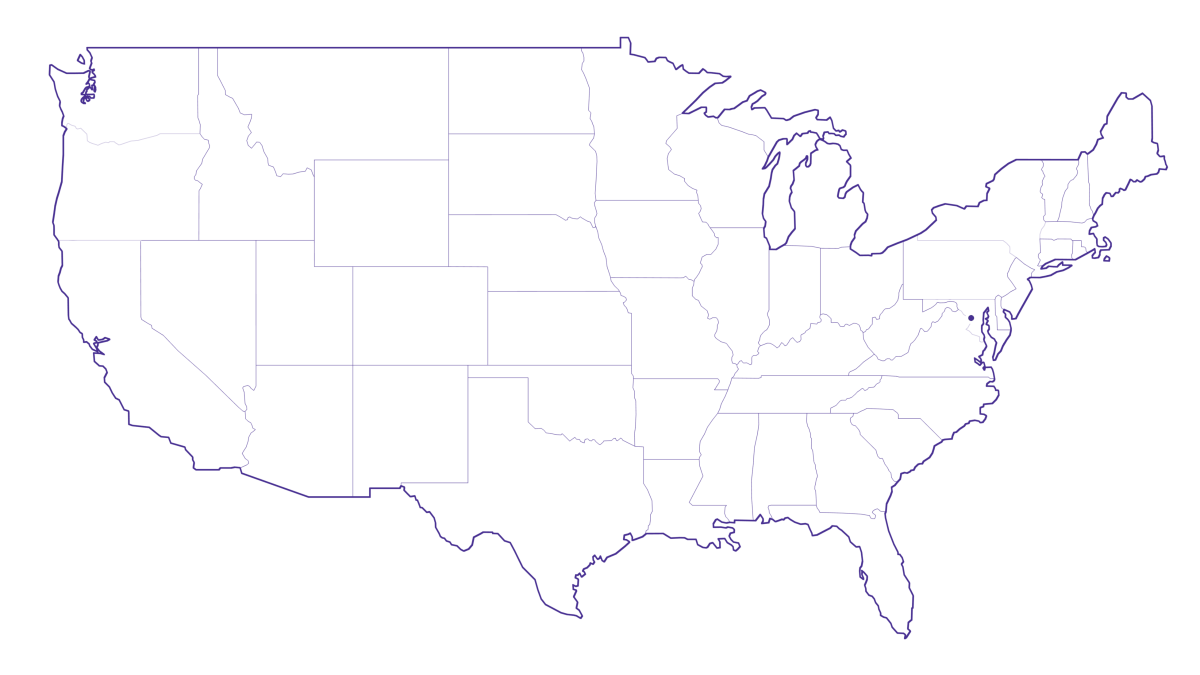Wired WiFi Vs 5G WiFi

Internet users increasingly find it challenging to choose Wired WiFi or 5G home internet WiFi for their online needs. 5G has revolutionized mobile network technology.
However, WiFi from wired connections such as fiber and cable provides a more consistent connection for internet than WiFi from 5G home internet, which can be prone to network congestion and outages.
What you'll learn:
- What is 5G home internet?
- What is the difference between Wired WiFi and 5G Wifi?
- WiFi vs. 5G speed comparison
- WiFi vs. 5G reliability comparison
- WiFi vs. 5G experience comparison
- WiFi vs. 5G coverage comparison
- WiFi vs. 5G cost comparison
- Is it worth using WiFi over your mobile data for internet?
- Bottomline: Is WiFi better than 5G home internet?
Fiber-powered internet
Why Fiber Internet works better
Astound’s fiber-powered internet provides consistent speeds throughout the day versus 5G Home Internet which is prone to intermittency.

What is 5G home internet?
5G is the fifth generation of mobile networking technology, slowly replacing 4G/LTE networks. 5G provides the potential for significantly faster download and upload speeds than 4G networks, with theoretical speeds of up to 20 Gbps. In addition to faster speeds, it promises significantly lower latency and a wide range of applications, including Internet of Things (IoT) devices.
5G home internet uses 5G technology to provide high-speed internet access to your home. It is a fixed wireless setup that gives you internet access via a router that connects to 5G cell towers. These cell towers transmit 5G wireless signals as radio waves to your router, which converts the signals to WiFi for your devices.
However, the performance and actual speeds provided by 5G home internet are inconsistent, as various factors influence them.
Ask the Expert video tutorial: What advantages does a wired internet connection have over 5G?
What is the difference between Wired WiFi and 5G Wifi?
In contrast to 5G for mobile, which provides an internet connection while you’re on the move, a fixed gateway device, or router, must be installed in your home to use 5G home internet.
Even though you’re on the same 5G network as your phone, the gateway router is specific to your location and cannot work elsewhere.
The gateway router interacts directly with the 5G cellular network, transforming the signal into a WiFi network within your home.
WiFi technology allows for short-range wireless communication in a confined area, such as a house, office or public space. A WiFi network needs a wireless router connected to a modem that connects to a wired internet connection (DSL, cable or fiber) and broadcasts the internet connection wirelessly to devices within its range.
WiFi that just works!
WiFi plans for any home
Tiny, large or somewhere in between; find WiFi coverage to fit any space. Blanket your entire home with a fast and ultra‑reliable connection.

Wired WiFi vs. 5G WiFi speed comparison
Wired WiFi and 5G WiFi speeds can vary widely based on various factors, including the speed tiers offered by ISPs and the online activities you perform when accessing the internet.
With 5G home internet, there are no defined speed tiers, so you get what the providers give you. The inconsistency is primarily due to 5G internet speeds being influenced by factors such as:
-
- Distance from cell towers
- Weather events
- Network congestion
- Density of coverage
Depending on the FWA provider, the internet plans typically provide a range of download speeds from 40 Mbps to 300 Mbps. For example, a user on Reddit experienced download speeds of up to 300 Mbps, which would then go as low as 20 Mbps.
If you are an avid gamer, work from home or stream HD content regularly, 5G home internet may not be stable enough to provide consistent internet speeds.
On the other hand, Wired WiFi speeds depend on the internet plans provided by the ISP. With Astound’s high-speed internet, you can get plans with different speed tiers to choose from. Astound’s internet plans offer speeds ranging from 300 Mbps to a maximum of 2000 Mbps in select areas.
With these fiber-powered speeds, you can connect to multiple devices in your home and choose the speeds you need for your requirements, whether gaming, working from home or streaming content.
Fiber-powered internet
Why Fiber Internet works better
Astound’s fiber-powered internet provides consistent speeds throughout the day versus 5G Home Internet which is prone to intermittency.

Wired WiFi vs 5G WiFi reliability comparison
WiFi from wired internet connections, including fiber and cable internet, facilitates high-speed data transmission. Fiber cables transmit data as light signals, providing speeds as fast as light, while cable internet uses electric signals through coaxial cables.
Both technologies reduce signal distortion from electromagnetic interference and are less affected by harsh environmental factors.
Ask the Expert video tutorial: How reliable is a 5G home connection?
Wired connections also maintain signal integrity over long distances with minimal attenuation and distortion. These features result in lower latency and provide consistent connections for an improved internet experience.
Comparatively, 5G home internet uses radio waves transmitted over the air. Obstacles like buildings and trees can affect the signals, reducing reliability over longer distances. In addition, a surge in internet users during peak usage times can lead to network congestion, slowing down 5G internet speeds and leading to bandwidth strain.
Astound has been rated as a top provider for reliable internet, speed and overall customer satisfaction. Astound offers ultra-fast internet through a wired cable or fiber connection, which provides a more consistent connection and is less susceptible to signal interference.
Wired WiFi vs. 5G WiFi experience comparison
The 5G home internet experience is inconsistent, as FWA providers offer varied upload and download speed ranges and may introduce constraints regarding internet throttling, congestion, network priority and fair use policies.
5G home internet users can also face other disruptions to their internet experience, including latency, jittering and lag when playing games online or streaming HD content. Latency is the amount it takes to transmit data packets from one place to another, which is necessary for online activities that require real-time responses.
These inconveniences can be caused by slow data speeds on congested 5G networks and 5G providers’ prioritization of cell phone users over home internet users.
On the other hand, Astound’s fiber-powered internet connection provides a more consistent connection, even during peak hours. You can stream HD content or play games with its ultra-reliable, smooth and speedy connection.

eero Plus
eero Plus protects your family online with a password manager to safely create, store and share passwords, virus and malware protection and a VPN that lets you browse the web safely and securely.
Wired WiFi vs. 5G WiFi coverage comparison
WiFi operates on a local area network (LAN) technology that provides wireless internet connectivity over a short range, usually inside homes, offices or public venues. Fortunately, a mesh WiFi system with multiple WiFi routers (eeros) can extend WiFi coverage to cover all corners of your home.
You can quickly expand your coverage by adding more mesh routers that communicate with each other to improve range and optimize the network.
The location of your home’s gateway router influences the 5G home internet coverage. Positioning your router close to the 5G cell towers’ direction will help you receive stronger and more reliable signals. However, physical obstacles like thick walls can interfere with your signal coverage.
Wired WiFi vs. 5G WiFi cost comparison
The cost of your Wired WiFi service and 5G home internet WiFi plans depends on your chosen service provider. Astound’s 300 Mbps* internet plan starts at $20 per month, while the following major 5G home internet providers have the following prices:
-
- T-Mobile home internet plans*** with download speeds ranging from 72 to 245 Mbps start at $55 monthly.
- Verizon 5G home internet plans**** with download speeds ranging from 50 to 300 Mbps start at $60 monthly.
- AT&T Internet Air plans***** with download speeds ranging from 40 to 140 Mbps start at $55 monthly.
The technology gap
You deserve better internet
5G Home Internet Fixed Wireless Access uses radio waves which are impacted by obstacles like buildings and trees, resulting in reduced reliability.

Is it worth using WiFi over your mobile data for internet?
The choice to connect to either WiFi or your mobile data depends on various situations. However, connecting to the internet using WiFi offers faster internet speeds and a more stable connection.
-
- WiFi networks typically provide unlimited data access, enabling you to stream, game and work from home without worrying about exceeding data caps. Comparatively, mobile data plans may have data caps imposed by network providers and charge a fee once you exceed the limits.
- WiFi from wired connections like fiber internet provides fast download and upload Gigabit+ speeds compared to mobile data plans. Mobile data speeds can vary depending on your location’s network coverage, signal strength or network congestion.
- WiFi networks are more cost-effective because your ISP provides unlimited internet access for a fixed monthly price. On the other hand, your mobile data provider may limit your cellular data and charge more if you exceed your data plan limits.
- Mobile data connections consume more battery, especially when you hotspot your data to other devices.
With Astound’s ultra-fast internet and mobile services, you can work from home, stream, game and complete everyday tasks in a connected home or on the go at a reasonable price.
Build your plan
Your perfect plan is just a click away
Get the speeds, WiFi, mobile and TV plans you need all at an affordable price. Bundle your services with Astound and see how much you can save.

Bottomline: Is Wired WiFi better than 5G WiFi?
The main differences between Wired WiFi and 5G home internet WiFi are the data transmission medium, speeds and reliability.
WiFi networks from wired connections like fiber and cable provide wireless internet connectivity within a short range, typically inside homes, offices or public spaces. On the other hand, 5G home internet leverages 5G cellular technology to offer broadband internet access.
WiFi speeds and 5G home internet speeds vary depending on the speed tiers offered and the users’ online activities. WiFi from fiber internet can provide up to Gigabit+ speeds, while WiFi from 5G home internet offers speeds between 40 Mbps and 300 Mbps.
The speeds and reliability of 5G home internet are inconsistent because they are influenced by factors such as coverage density, physical barriers from infrastructure and network congestion.
Your internet needs and location influence the choice between Wired WiFi and 5G WiFi. If you handle data-intensive applications like online gaming, streaming HD content and working from home regularly, consider a wired connection to provide fast and stable WiFi to handle your tasks seamlessly.
Create the perfect bundle
Get the speed, WiFi, mobile and TV that’s just right for you.
*Internet speeds may vary & are not guaranteed. Certain equipment may be required to reach advertised speeds. DOCSIS 3.1 modem with 2.5GE physical LAN port is required for 1 Gigabit speeds and higher. See astound.com/yourspeed for why speeds may vary. To view Astound’s FCC Network Management Disclosure see astound.com/policies-disclaimers. Limited time offer, subject to change without notice. Advertised promotional price valid for duration of the stated promotional period from time of service activation. Regular rates apply after promotional period ends. Equipment not included and is extra. Modem required for Internet service. Enhanced Wi-Fi or Whole Home Wi-Fi (eero) not included and is add’l. Offer includes a monthly discount for enrollment in both automatic payments (autopay) & paperless billing (e-bill). Discount of $10 applies with automated bank account deduction or a discount of $5 applies with automated credit/debit card payment. Valid email address required. Must complete enrollment in autopay and e-bill within 30-days of placing the order. Without enrollment, the discount does not apply. Discount appears on bill within 3 bill cycles after enrolling. If either autopay or e-bill is canceled, services are changed, or the account is not in good standing, then the monthly discount will be discontinued. Offer valid only for new residential Astound customers or previous customers with an account in good standing who have not had Astound service within the last 60 days. Any add’l services, equipment, premium channels & other tiers of service are subject to an add’l charge & regular increases. A one-time activation fee of $14.99 (in addition to any installation fees) will be charged & is subject to change. Add’l fees apply for taxes & surcharges, and are subject to change. WA RESIDENTS: unless otherwise specified, price does not include a 2% Regulatory Administration Fee. For details about taxes, fees & surcharges visit astound.com/fees. No early termination fees apply in the event service is terminated in advance of the promotional end date. Customer is responsible for any accrued service charges in the event service is canceled. Subject to credit check. Not all services & speeds are available in all areas. A multi-product discount may be available to qualifying addresses with a subscription to mobile, TV, and 600 Mbps Internet or higher. Discounts will be reflected in your order cart at time of purchase, if available. Other restrictions may apply. All services are governed by the Astound Customer Terms & Conditions that can be found at astound.com/policies-disclaimers. © 2025 Radiate HoldCo, LLC d/b/a Astound Broadband. All rights reserved.
While we have made every attempt to ensure that the information contained in this site has been obtained from reliable sources, Astound is not responsible for any errors or omissions, or for the results obtained from the use of this information. All information in this site is provided “as is”, with no guarantee of completeness, accuracy, timeliness and without warranty of any kind, express or implied, including, but not limited to warranties of performance, merchantability and fitness for a particular purpose. Certain links in this site connect to other websites maintained by third parties over whom Astound has no control. Astound makes no representations as to the accuracy or any other aspect of information contained in other websites.
AT&T Internet Air, T-Mobile 5G home internet and Verizon 5G home internet details were pulled from their respective websites on December 5, 2023. *Internet speeds may vary & are not guaranteed. Certain equipment may be required to reach advertised speeds. Limited time offer, subject to change without notice. Advertised promotional pricing valid for 12 or 24 months from service start date, subject to change thereafter. Astound offers month-to-month service with base discounted introductory rate tiers. Prior to the end of any discounted rate tier, subscribers receive a notice informing them of the end of the discounted rate tier and providing information about the next discounted rate tier. Unless otherwise specified, 2-year price lock only available w/ promo internet pricing for speeds of 500 Mbps or greater. Additional fees apply for taxes and surcharges, and are subject to change. For details about fees & taxes visit astound.com/fees. Offer includes a monthly discount for enrollment in both automatic payments (autopay) & paperless billing (e-bill). Discount of $10 applies with automated bank account deduction or a discount of $5 applies with automated credit/debit card payment. Valid email address required. Must complete enrollment in autopay and e-bill within 30-days of placing the order. Without enrollment, the discount does not apply. Discount appears on bill within 3 bill cycles after enrolling. If either autopay or e-bill is canceled, services are changed, or the account is not in good standing, then the monthly discount will be discontinued.
**Source
*Internet speeds may vary & are not guaranteed. Certain equipment may be required to reach advertised speeds. DOCSIS 3.1 modem with 2.5GE physical LAN port is required for 1 Gigabit speeds and higher. See astound.com/yourspeed for why speeds may vary. To view Astound’s FCC Network Management Disclosure see astound.com/policies-disclaimers. Modem required for Internet service. No contract required. Subject to availability. We substantiate that the cable modem equipment provided, and the configuration of such cable modem, meets the broadband speeds advertised when attached to a wired connection based on SamKnows testing procedures.
***Source: T-Mobile FAQs and Home Internet Plan Full Terms on 1/29/2024.
**** Source: Pulled from Verizon’s plan details on 1/29/2024.
****Source: Pulled from AT&T Internet Air’s plan page, FAQs and Support Page on 1/29/2024.
eero Plus is available for an additional $9.99/month and requires subscription to whole home WiFi powered by eero.

















